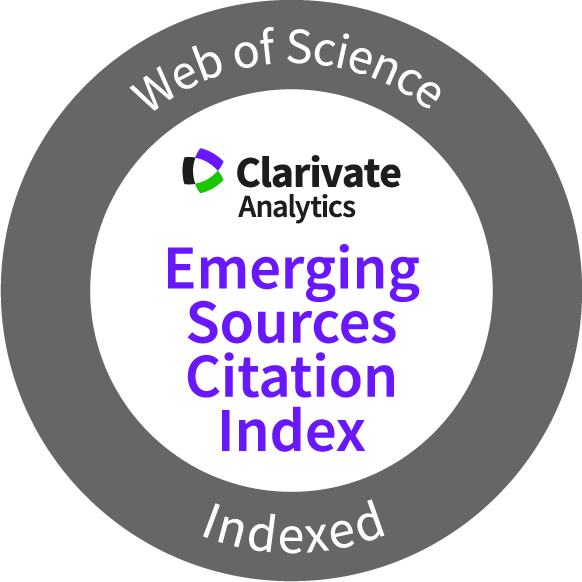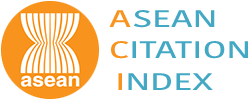THE EFFECT OF ADDITIONAL DADIH ON LACTIC ACID BACTERIA AND NUTRITIONAL VALUE OF PUDDING AS A FOOD SUPPLEMENTATION
Keywords:
Dadih pudding, lactic acid bacteria, nutritional value, pregnant womenAbstract
Dadih is a dairy product obtained from fermented buffalo milk in West Sumatra, Indonesia. It contains various nutrients and probiotics that are beneficial for prenatal supplementation and pregnancy outcomes. In this study, a pudding enriched with dadih was formulated. The study was conducted in November-December 2019 at the Nutrition Laboratory Andalas University. The design of this study was a True Experiment using a Completely Randomized Design (CRD) with two replications consisting of four formulas. They were F0, F1, F2, and F3 with the addition of dadih at 0, 80, 90, and 100 g, respectively. Analysis of nutritional value and the number of Lactic Acid Bacteria (LAB) was performed. Based on the nutritional value analysis, 100 g of dadih pudding contains 11.59% of carbohydrate, 1.24% of protein, 1.09% of fat, with a total of 61.13 calories for F0; 10.41% of carbohydrate, 2.29% of protein, 3.29% of fat, with a total of 80.41 calories for F1; 10.12% of carbohydrate, 4.74% of protein, 3.32% of fat, with a total 89.32 calories for F2; and 11.84 % of carbohydrate, 3.05% of protein, 3.13% of fat, with a total 87,73 calories for F3. The result of the LAB test of dadih pudding showed that: F0 at 3.1 × 103 (CFU/g); F1 at 1.7 × 109 (CFU/g); F2 at 2.4 × 109 (CFU/g), and F3 at 2.4 × 109 (CFU/g). While the result of the Kruskall Wallis test showed that there was a significant difference between the hedonic test and the hedonic quality test of four dadih pudding formulas (p<0.000). The chosen formula was F3 with the highest nutrition value average of 87.73 kcaL total calories. Dadih pudding is recommended as a food supplementation because it is good for the digestive system and can increase the immune system of pregnant women.
Downloads
Metrics
References
Aji, A.S., & Yerizel, E. 2019. Low Maternal Vitamin D and Calcium Food Intake during Pregnancy Associated with Place of Residence: A Cross-Sectional Study in West Sumatran Women, Indonesia. Open Access Macedonian Journal of Medical Science, 7(17): 879-2885. DOI: https://doi.org/10.3889/oamjms.2019.659
Balqis, R., Putra, A.E., Utama, B.I., & Helmizar. 2018. Pengaruh Pemberian Dadih dengan Perubahan Jumlah Lactobacillus fermentum pada Feses Ibu Hamil. Andalas Journal of Health, 7(3), 42-46. DOI: https://doi.org/10.25077/jka.v7i0.872
Bellieni, C.V. 2016. The Golden 1000 Days. Journal of General Practice, 4(2), 1-3. DOI: https://doi.org/10.4172/2329-9126.1000250
BeMiller & Low. 1998. Carbohydrate Analysis. HPLC. Geithersnburg.
Daswati, E., Hidayati, & Elfawati. 2009. Kualitas Dadih Susu Kerbau dengan Lama Pemeraman Yang Berbeda. Jurnal Peternakan, 6(1), 1-7.
Farias, P.M. 2020. Minerals in Pregnancy and Their Impact on Child Growth and Development. CRC Press. Boca Raton
Fikawati, & Wahyuni. 2012. Relationship between Maternal Nutritional Status and Infant Birth Weight of Vegetarians in DKI Jakarta. Makara Kesehatan, 16(1), 29-35. DOI: https://doi.org/10.7454/msk.v16i1.1299
Helmizar. 2019. Guide to the Consumption of Curd as a Nutritional Supplement for Pregnant Women. Andalas University Press. Padang. 85-89pp
Helmizar, Putra, A.E., & Yusita. 2019. Analysis of the Nutrients and Microbiological Characteristic of the Indonesian Dadih as a Food Supplementation. Global Journal Health Science, 11(1), 155-161. DOI: https://doi.org/10.5539/gjhs.v11n1p155
Hill, C., Guarner, F., Reid, G., Gibson, R.G., Merenstein, D., Pot, B, Sanders, M.E. 2014. The Internal Scientific Association for Probiotics and Prebiotics Concencus Statement on The Scope and Appropriate Use of the Term Probiotic. Nature Reviews Gastroenterology and Hepatology, 11, 506-514. DOI: https://doi.org/10.1038/nrgastro.2014.66
Horwitz, William. 2000. Official Methods of Analysis. 17th Edition, The Association of Official Analytical Chemists, Gaithersburg.
Kasimin, M.E., Faik, A.A.M., Jani,J., Abbasiliasi,S., Ariff,A.B., Jawan,R. 2020. Probiotic Properties of Antimicrobial-Producinglactic Acid Bacteria Isolated From Dairy Productsand Raw Milk Of Sabah (Northern Borneo), Malaysia. Malaysian Applied Biology, 49(3), 95-106. DOI: https://doi.org/10.55230/mabjournal.v49i3.1580
Kechagia, M., Basoulis, D., Konstantopoulou, S., Dimitriadi, D., & Gyftopoulou, K. 2013. Review Article Health Benefits of Probiotics: A Review. ISRN Nutrition, 2013, 1-7. DOI: https://doi.org/10.5402/2013/481651
Kemenkes. 2012. Profil Kesehatan Indonesia Tahun 2012. Kementrian Kesehatan republik Indonesia. Jakarta.
Litbangkes. 2018. Hasil Utama Riskesdas 2018. Kementerian Kesehatan Republik Indonesia. Jakarta
Nurrmadinisia, R. 2012. Efektifitas Program Pemberian Makanan Tambahan pada Ibu Hamil Kekurangan Energi Kronik di Kota Depok. Universitas Islam Negeri Jakarta
Purwati, E. 2018. Diversifikasi Profuk Dadih Halal Asal Susu Kerbau Sumatera Barat Menunjang Kesehatan dan Ekonomi Rakyat. Universitas Andalas.
Surono, I.S. 2015. Indonesian Dadih. In: Fermented Milk and Dairy Product. Puniya, A.K. (Ed). CRC Press. Jakarta.
Taufiqa, Z., Chandra, D.N., Helmizar, Lipoeto, N.I., & Hegar, B. 2021. Micronutrient Content and Total Lactic Acid Bacteria of Dadiah Pudding as Food Supplementation for Pregnant Women. Open Acces Macedonian Journal, 19(B), 1149-1155. DOI: https://doi.org/10.3889/oamjms.2021.6791
Usmiati, S., & Risfaheri. 2013. Pengembangan Dadih sebagai Pangan Fungsional Probiotik Asli Sumatera Barat. Jurnal Penelitian dan Pengembangan Pertanian, 32(1), 20-29.
Venema, K., & Surono, I.S. 2018. Microbiota Compositioan of Dadih- A Traditional Fermented Bufallo Milk of West Sumatra. Letters in Applied Microbiology, 68(3), 1-18. DOI: https://doi.org/10.1111/lam.13107
WHO. 2017. Nutritional Anemias: Tools for Effective Prevention and Control. World Health Organization. Geneva.
Wirayo. 2002. Peningkatan Gizi Bayi, Anak, Ibu Hamil dan Menyusui dengan Bahan Makanan Lokal. CV Agung Seto. Jakarta
Published
How to Cite
Issue
Section
Any reproduction of figures, tables and illustrations must obtain written permission from the Chief Editor (wicki@ukm.edu.my). No part of the journal may be reproduced without the editor’s permission





















